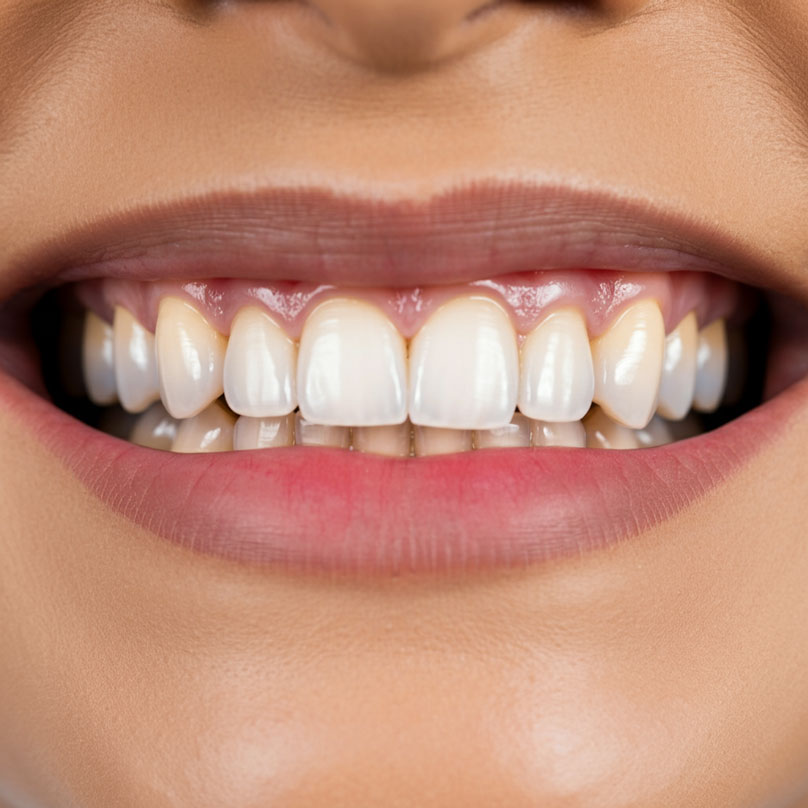When you think about oral health, your teeth likely come to mind first—clean, bright, straight. But what about your gums? The soft tissue supporting your teeth plays a crucial role in your overall health, yet it often doesn’t get the attention it deserves. Healthy gums are the foundation of a healthy mouth and can even impact your body in ways that might surprise you.
Understanding the importance of your gum health is critical, not just for keeping your smile intact but also for ensuring your overall health and well-being. Below, we’ll share five surprising facts about gum health and why taking care of your gums is one of the smartest health decisions you can make.

1. Gum Disease Can Affect Your Heart Health
Did you know that your gums and heart might be more connected than you think? Studies have shown a strong link between gum disease and cardiovascular problems, including heart attacks and strokes. But why?
The condition known as periodontal disease—caused by bacterial infection and inflammation of the gums—can allow harmful bacteria to enter your bloodstream. Once there, these bacteria can travel to other parts of the body, potentially contributing to inflammation around the heart and even leading to atherosclerosis (a narrowing of the arteries).
For people with pre-existing heart conditions, gum health should be a top priority. Maintaining good oral hygiene may even reduce your overall risk of heart disease.
How to Protect Yourself:
Start by scheduling regular dental check-ups and cleanings every six months. At home, brush twice a day with fluoride toothpaste, and don’t skip flossing! By reducing bacteria in your mouth, you can lower risks to both your gums and your heart.
2. Gum Disease Is Often Silent—Until It’s Serious
Unlike a toothache, gum disease doesn’t always come with glaring symptoms, especially in its early stages. This makes it one of the sneakiest oral health issues. Early-stage gum disease, known as gingivitis, typically causes mild tenderness or bleeding gums when brushing or flossing. Most people overlook these signs or write them off as minor annoyances.
If left untreated, gingivitis can develop into periodontitis, a more severe infection that can lead to gum recession, tooth loss, and even bone damage. By the time symptoms like loose teeth or persistent bad breath appear, the damage may already be significant and harder to reverse.
How to Catch It Early:
Pay attention to subtle changes in your gums. Any swelling, redness, or bleeding while brushing or flossing should be a red flag to see your dentist. Early intervention is key to keeping gum disease under control.
3. Gums Reflect Your Overall Health
Your gums don’t just protect your teeth—they can also act as a window into your body’s overall health. For instance, signs of gum disease have been linked to several systemic conditions, including diabetes, rheumatoid arthritis, and even Alzheimer’s disease.
If you have diabetes, for example, you may be at a higher risk of gum disease due to higher blood sugar levels, which can feed the bacteria in your mouth. Additionally, chronic inflammation caused by periodontitis may contribute to the progression of these diseases. This connection works both ways—by improving your gum health, you may also improve your control over other medical conditions.
Proactive Steps to Stay Healthy:
Talk to your dentist if you have a pre-existing condition or family history of systemic illnesses. Extra vigilance with your gum health, combined with regular cleanings and the right treatments, can make a big difference.
4. Poor Gum Health Can Tarnish a Winning Smile
A bright, straight smile is a confidence booster, but neglecting your gum health can quickly overshadow the appearance of even the most beautiful teeth. Gum recession—when gum tissue pulls away from the teeth—exposes more of the tooth root, leading to a longer, uneven tooth appearance. The result? A smile that looks unhealthy and aged.
On top of cosmetic concerns, gum disease can also lead to tooth loss, permanently altering the look and function of your smile. Missing teeth create gaps that affect how your face is structured, potentially making you look older than you are.
Advice for Maintaining a Healthy Smile:
Invest in your gum health by staying consistent with daily hygiene habits. Consider using an antimicrobial mouthwash as part of your routine and eat a balanced diet rich in vitamin C, which promotes strong, healthy gums.
5. Stress Can Impact Your Gum Health
Many people think of stress as just a mental or emotional issue, but it also has real consequences for your physical health—including your gums. When you’re under significant stress, your body releases cortisol, a hormone that can contribute to inflammation throughout your entire system.
This inflammation can accelerate gum health issues like gingivitis or periodontitis. Stress is also linked to poor immune system responses, which might make it harder for your body to fight off infection in your gums. To make matters worse, stressed individuals may neglect their oral hygiene or turn to harmful habits like smoking, both of which can aggravate gum problems.
Stress Management Tips for Gum Health:
- Maintain consistent oral hygiene routines, even during hectic times.
- Incorporate stress-reducing activities like yoga, meditation, or regular exercise into your daily life. These habits contribute to both mental clarity and better oral health.
- Avoid stress-based snacking on sugary foods as they can worsen oral health.
Preventing Gum Disease: Simple Steps for Success
Now that you know how essential your gum health is, the next step is to take action. Prevention is easier and far less expensive than treating advanced gum disease. Here’s what you can do every day to keep your gums healthy and your overall health intact:
- Brush Your Teeth Twice Daily
Use a soft-bristled toothbrush and spend at least two minutes on each brushing session, focusing on where the teeth meet the gumline.
- Floss Regularly
Cleaning between your teeth removes food particles and plaque from areas that your toothbrush can’t reach. Aim to floss once a day.
- Use Mouthwash
An antimicrobial or fluoride mouthwash can help reduce bacteria in your mouth, protecting your gums from infection.
- Avoid Tobacco
Smoking or chewing tobacco weakens your immune system and significantly increases your risk of gum disease.
- See Your Dentist Regularly
Professional cleanings and early check-ups ensure you stay ahead of gum problems before they develop into larger issues.
- Eat for Gum Health
Foods rich in calcium (like yogurt and leafy greens) and vitamin C (such as oranges or bell peppers) can strengthen your gums and protect against disease.
Why Gum Health Matters
Your gums are more than just the pink tissue surrounding your teeth—they’re an integral part of your overall health. Ignoring their care can lead to more than just oral health issues; it could contribute to other serious conditions that affect your body.
By taking preventive measures and recognizing the signs of gum trouble early, you can ensure your gum health stays in top shape for years to come. Remember, a healthy smile starts with healthy gums—and investing in their care will reward you with better health and confidence in every aspect of your life.


